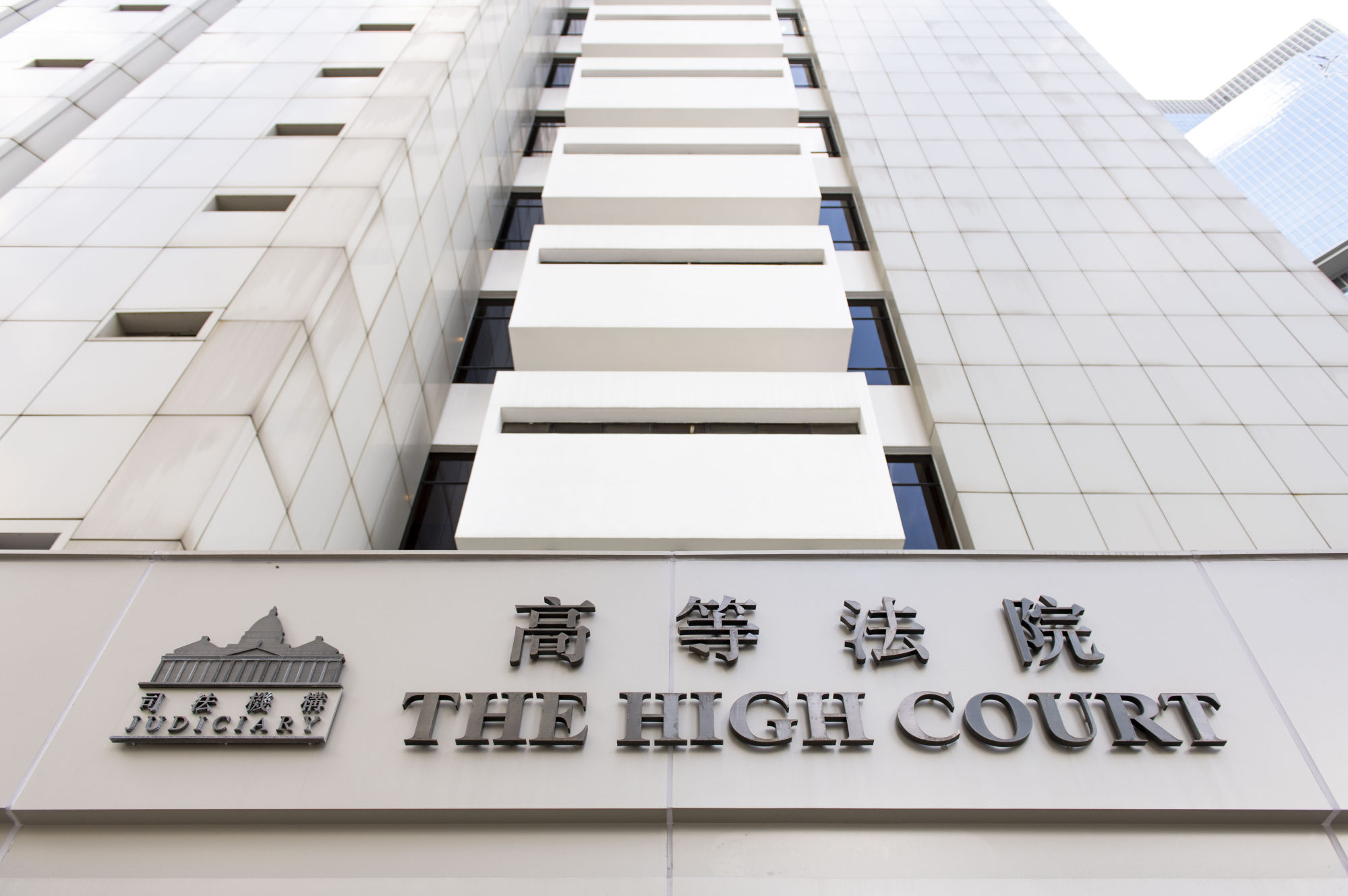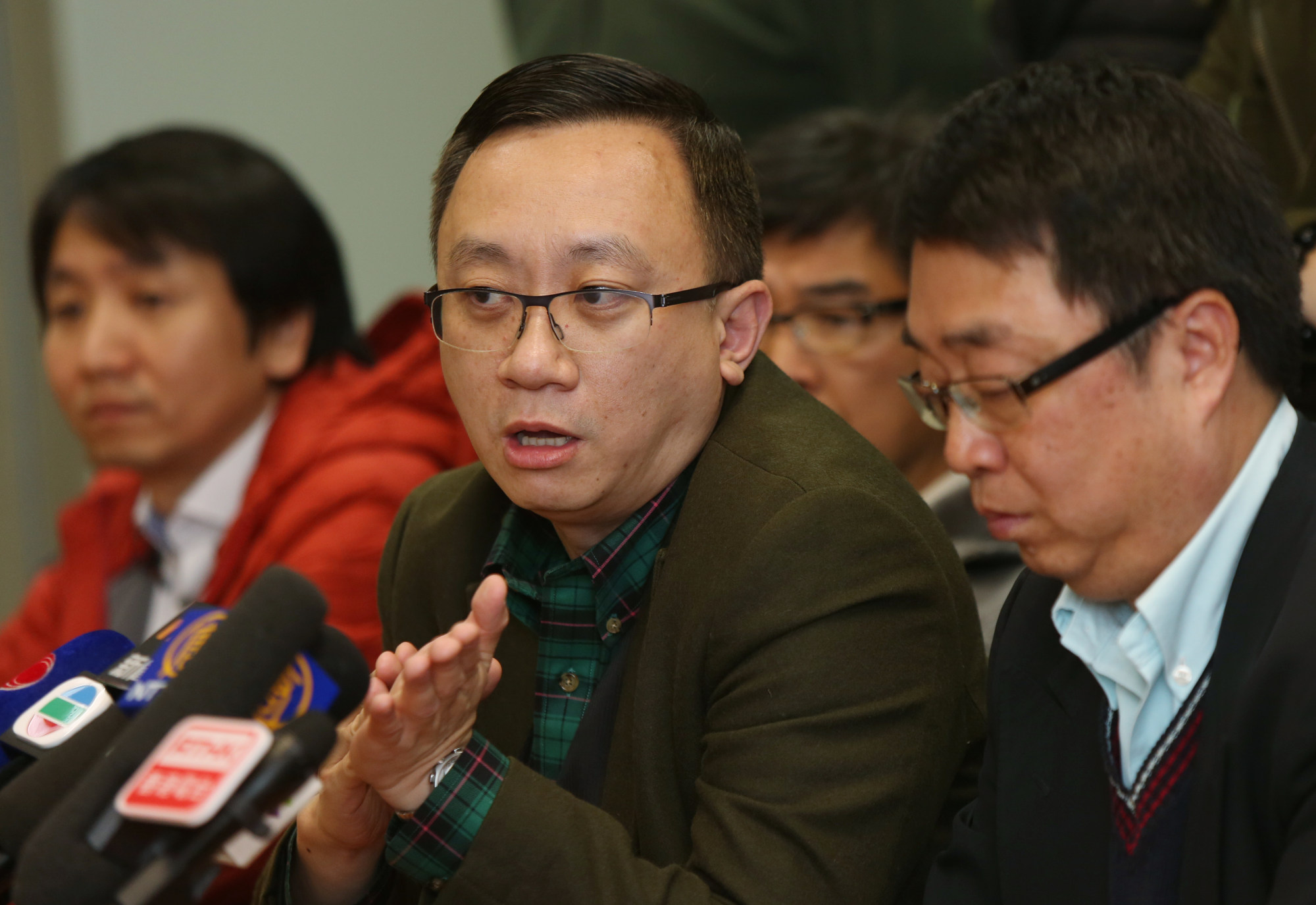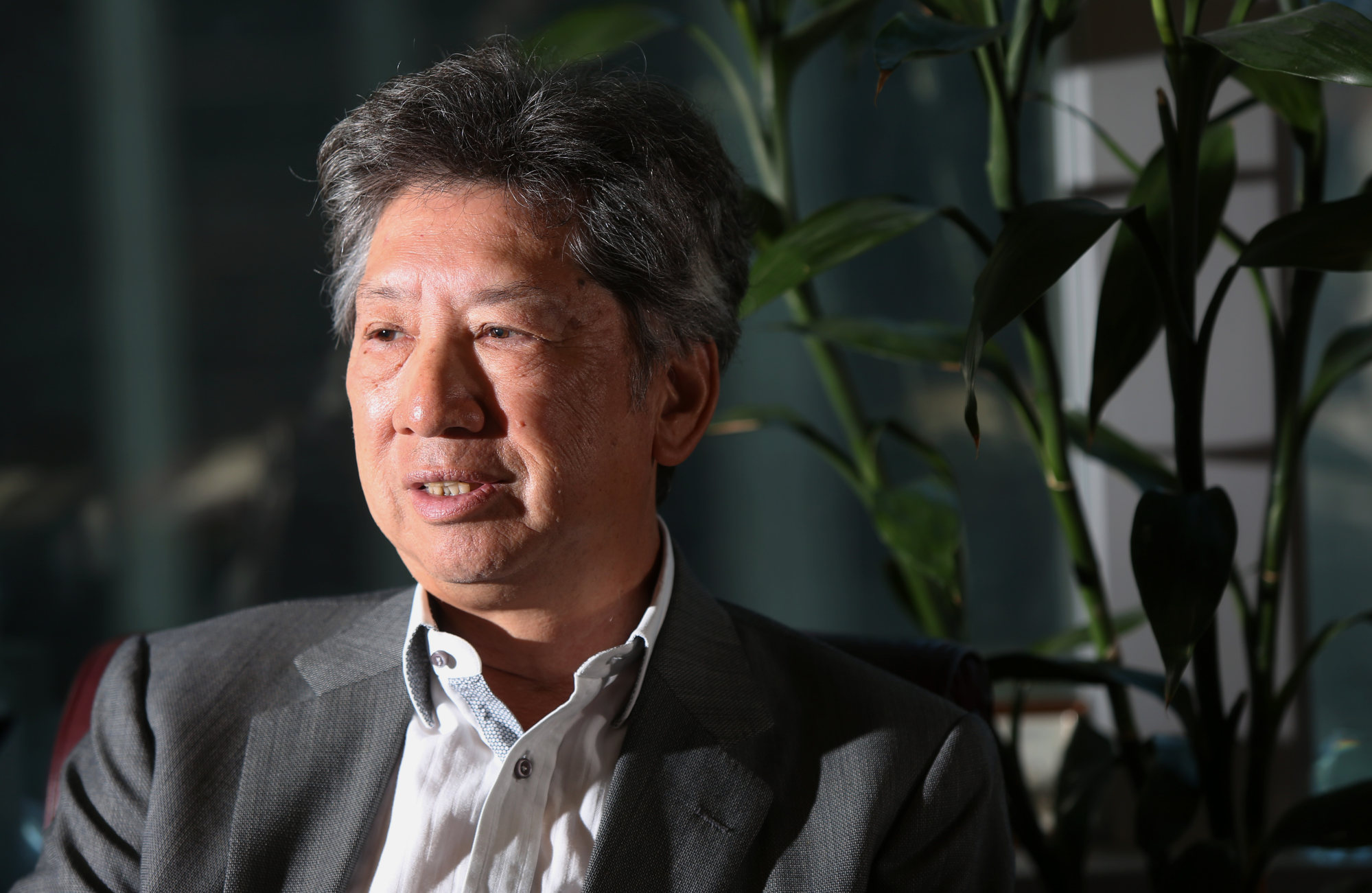
Hong Kong government bid to get court ban on protest song ‘Glory to Hong Kong’ will have ‘chilling’ effect, experts warn
- Government adviser dismisses concerns from academics and lawyers, insists need to protect national security takes precedence
- High Court asked to issue an injunction to ban ‘Glory to Hong Kong’, used as unofficial anthem of 2019 anti-government protests
An unprecedented bid by Hong Kong’s government to get a court ban on a protest song rather than passing a law or using existing legislation will create a “universal” chill and have a major impact on the city’s freedom of information, lawyers and academics have warned.
But government advisers defended the move on Wednesday, arguing that freedom should have limits and part of the lyrics had been ruled to be “seditious words” by the court in a previous case.

Lokman Tsui, a research fellow with the Citizen Lab at the University of Toronto, who earlier taught at Chinese University’s journalism school, said he believed the application was an attempt by Hong Kong authorities to step up pressure on Google to take the song down in search results for the city’s national anthem.
It came to the attention of the city authorities that “Glory to Hong Kong” rather than “March of the Volunteers” had topped Google search results for “Hong Kong national anthem” after a series of mix-ups at international sports events saw the wrong song used.
A check by the Post found that, although a Hong Kong government web page topped the search result for a city-based Google user, a Wikipedia page on “Glory to Hong Kong” still ranked high in results shown to users in Japan and the Netherlands.
Tsui, who was Google’s Asia-Pacific head of free expression between 2011 and 2014, said he was concerned the government might be trying to “request global censorship” with the injunction. He added the scope of the injunction’s effect, if it was granted by the courts, was still unclear.
“It’s also worrisome from a procedural point of view that the Hong Kong authorities are developing a track record of resorting to using this kind of injunction to censor content, instead of relying on lawmaking and legislation that would include at least some discussions and deliberation,” Tsui said.
A court order would prohibit anyone from playing the song in a manner that was likely to cause it “to be mistaken as the national anthem insofar as the [Hong Kong Special Administrative Region] is concerned”, or suggest that Hong Kong was “an independent state and has a national anthem of her own”.
The government also wants to ban 32 videos of the song on YouTube, including versions in Cantonese and English.
The Post has asked Google, which operates YouTube, for comment.
He added, even if the song was uploaded to a foreign host such as YouTube, the government could still pursue the relevant individual for contempt of court if they were in Hong Kong and could be identified.
“Ultimately it would be up to the courts to make a determination of intent on a case-by-case basis,” Hargreaves said.

Francis Fong Po-kiu, the honorary president of the Hong Kong Information Technology Federation, said he expected streaming platforms to only block Hong Kong-based users’ access to the videos using their internet protocol (IP) addresses if the injunction was approved.
But he added the execution would also depend on the operators’ legal compliance policies and whether the streaming platforms’ offices came under Hong Kong’s jurisdiction.
Kevin Yam Kin-fung, a lawyer and former convenor of the now-disbanded Progressive Lawyers Group, said success with the injunction would create an immediate and greater chilling effect when compared with regulating seditious acts with existing legislation.
“The authorities will have to review individual cases to consider whether to press charges against individuals. But an injunction order, if granted, applies to everyone. The chilling effect is universal,” said Yam, now based in Melbourne.
He also warned the move would have a far-reaching impact on the city’s freedom of information.
“It would not only affect internet platforms and copyright holders, but also affect private conversations offline and online, and even someone with the song as a ringtone on their mobile phone,” he explained.
Yam said a breach of any court order would still need to be proven beyond reasonable doubt to get a ruling of contempt of court.
But Tong, a member of the Executive Council, the government’s key decision-making body, said whether an individual had intent to incite secession or insult the national anthem depended on circumstantial evidence and their past actions.
“If a person’s mobile plays the song as a ringtone in the MTR, the authorities might look into whether he or she deliberately asked others to make a call for the purpose of playing it publicly,” he explained.
“To save oneself from suspicion, the safest way is not to keep it and not to play it.”
He advised deletion as the safest option for people who had downloaded or kept the song.

Tong also dismissed claims that the injunction would undermine the city’s free flow of information without censorship of content.
He said that freedoms should have limits, especially in connection with national security.
The Exco member also said on Wednesday the injunction would not, theoretically, have an impact on websites and social media platforms with servers outside Hong Kong.
“It depends on how willing those [companies] are to take social responsibility in sorting right and wrong. Not being in [our] jurisdiction does not mean they are right,” he said.
“All social media platforms have internal guidelines that prohibit them from assisting people in committing crimes such as murder or bomb-making. They are capable of self-regulating in those areas, but why do they think they can assist others in committing crimes that endanger national security?”
Another Exco member and legislator, Regina Ip Lau Suk-yee, told reporters that she welcomed the application on Wednesday as Google had been “uncooperative” when the government requested it manipulate search results.
The former security minister said since the city’s High Court had already ruled in a 2021 national security case that certain wording in the lyrics amounted to inciting secession, an injunction targeting the song would not affect freedom of speech.
“The court has ruled that these are seditious words, not general expressions. So I don’t think it will affect the residents’ freedom of speech at all. Of course, the extent and execution of the injunction will depend on the court’s decision,” she told local media.
Victor Dawes, the chairman of the Bar Association, said the right balance needed to be struck and any perception that freedom of speech was being eroded would not be in Hong Kong’s interests.
“Our citizens are entitled to know with clarity what sort of conduct is prohibited and what is allowed and hence there should not be any ambiguity,” he said.
Dawes agreed that national security was important, as was freedom of speech, which is guaranteed under Article 27 of the Basic Law.


